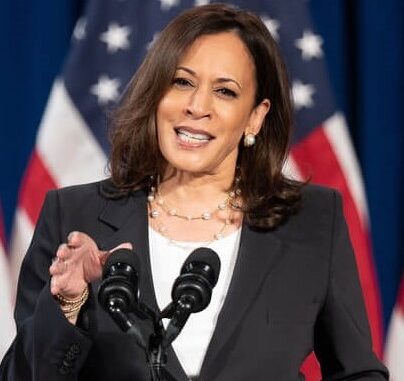
Celebrating Black History Month
Since 1976, February has been celebrated as National Black History Month. We use this time to honor the brave activists who fought against racial discrimination and oppression, as well as the artists, leaders and innovators who’ve left an indelible mark on our nation. As we reflect on these pioneers, we must keep in mind that the battles fought by these trailblazers of history are still being fought today.
One such pioneer, Shirley Chisholm, the first Black woman elected to the United States Congress, lived right here in Brooklyn. In addition to representing New York’s 12th Congressional District for seven years, Ms. Chisholm became the first Black candidate to run for President of the United States, as well as the first woman to run for her party’s presidential nomination.
Last year, we witnessed history in the making, with the election of Vice President Kamala Harris, the first Black woman to hold the position in the United States. History has also been made on Capitol Hill. In 2020, a record number of Black women were elected to Congress, which builds on the history made in 2018 when a record 57 Black Members were sworn into the 116th Congress.
In addition, we’ve begun to see monuments to controversial political figures and Confederate soldiers come down, as communities across the country reckon with the racism and violence that stains our nation’s past and present.
Other such great pioneers that we must continue to remember for their contributions to the betterment of our society include, Frederick Douglas, a social reformer and national leader of the abolitionist movement; Harriet Tubman, one of the most prominent and effective conductors, who helped hundreds of enslaved people escape their captors; Langston Hughes, a renowned poet, social activist, novelist, playwright, and columnist; and Jackie Robinson, a professional Major League Baseball player who broke the baseball color line when he started at first base for the Brooklyn Dodgers.
Despite all the progress made by these influential activists, artists and politicians, racism and discrimination still permeate American society. While over 370,000 Americans have now lost their lives to COVID-19, it’s clear that Black people are disproportionately affected by the virus.
Black Americans were infected and died at a rate 1.5 times their share of the population, with the number jumping to 2.5 in Missouri, Kansas, Wisconsin and Michigan. This disparity points to a deeper entrenched issue of health care inequality. The New York City Commission on Human Rights also released a report featuring testimonials from Black New Yorkers explaining that racism was “inescapable and emotionally taxing” in their day-to-day lives.
In 2020, protests surged across the country in the wake of the police murders of George Floyd and Breonna Taylor, occurring in more than 400 cities and towns across all 50 states and led to a surge in the Black Lives Matter movement. Black Lives Matter began in 2013 as a social media hashtag created by Alicia Garza, Patrisse Cullors and Opal Tometi following the acquittal of George Zimmerman in the 2012 death of Trayvon Martin.
These courageous activists, even when faced with a militarized police response, never wavered in their commitment to end horrific police brutality and violence against Black communities.
In New York, the Assembly Majority took quick action to show that we won’t stand by while this violence occurs and passed new laws to help hold bad police officers accountable, promote transparency and begin rebuilding trust between communities and the police.
Black History Month serves as a time to not only honor and remember the victories of the past, but to motivate us to continue the path toward true equality. Together, we can continue the work started by these pioneering activists and finally bring their goals – and our country’s founding ideals – to fruition.
About: Assemblymember Rodneyse Bichotte Hermelyn
Assemblymember Rodneyse Bichotte Hermelyn represents the 42nd Assembly District in the New York State Assembly representing the Brooklyn communities of Ditmas Park, Flatbush, East Flatbush and Midwood. She is currently the Chair of the Subcommittee on Oversight of Minority and Women-Owned Business Enterprises (MWBEs), and serves on the following committees: Housing, Government Operations, Economic Development, Banks, Health, and Higher Education. She is also a member of the Task Force on Women’s Issues and sits on Governor Cuomo’s Domestic Violence Advisory Council and Mayor De Blasio’s MWBE Task Force.
As a current Assemblymember and District Leader, Rodneyse Bichotte Hermelyn has been an outspoken advocate on issues concerning immigration, education, economic development, unemployment, education reform, health care access, senior citizen centers, affordable housing, school safety, women’s and LGBTQ rights, as well as other issues affecting the quality of life in the community.
Photo: Kamala Harris, vice president of the United States
Assemblymember Rodneyse Bichotte Hermelyn


